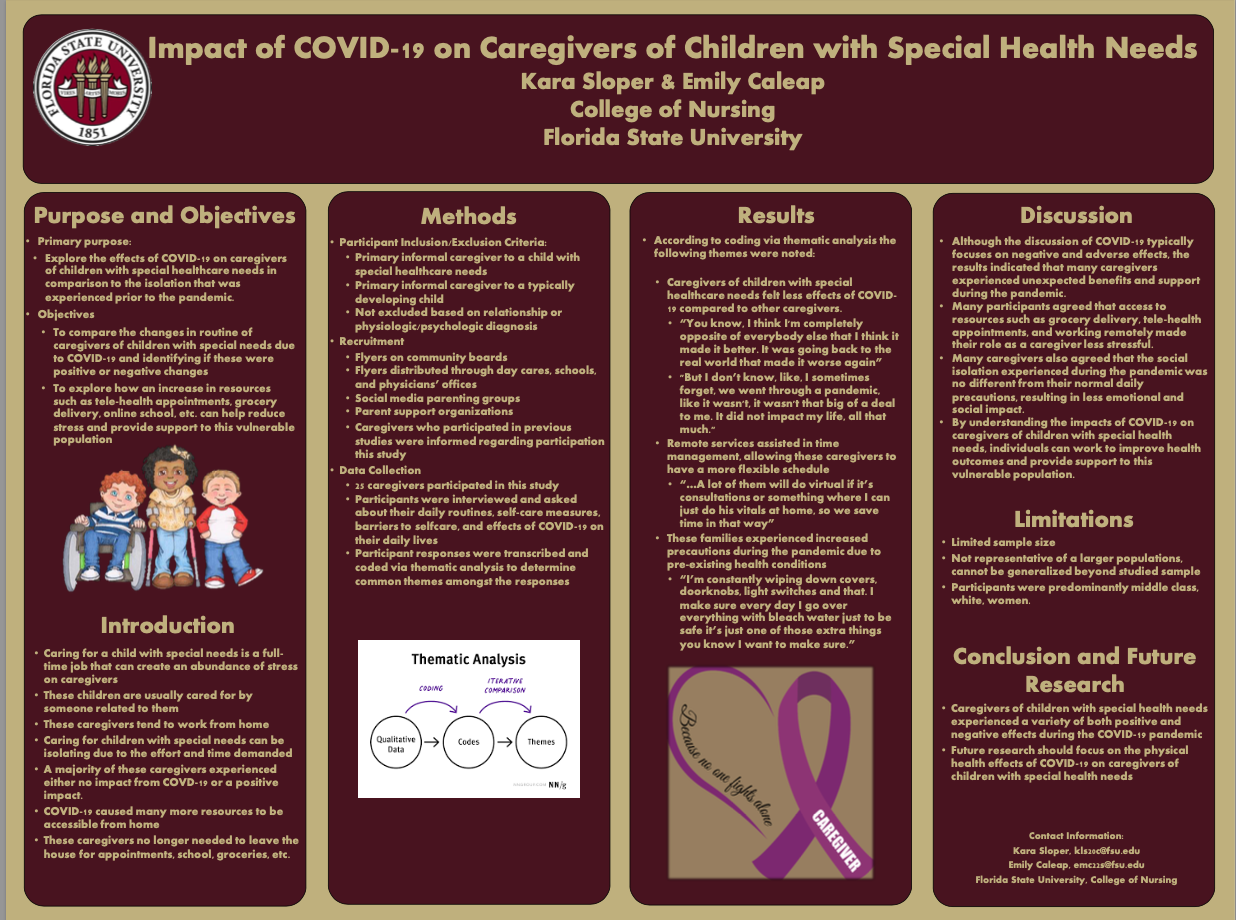Research Symposium
24th annual Undergraduate Research Symposium, April 3, 2024
Kara Sloper Poster Session 2: 10:45 am - 11:45 am/442

BIO
Kara Sloper is a senior from Ellicott City, Maryland double majoring in nursing and public health. Her passion for research developed in high school, where she researched more effective cures for prostate cancer at The University of Maryland, Baltimore County. Kara completed the Undergraduate Research Opportunity Program (UROP) during her sophomore year where she conducted research under The Leadership Programs Project, and she has served as a UROP Leader during her junior and senior years. Outside of research, Kara is involved in The University Honors Program, Pi Beta Phi sorority, Engage 100, and she works as a pediatric medical assistant. Upon graduation, she hopes to begin her career as a pediatric critical care nurse. Kara would like to thank Dr. Bamber for allowing her to continue her passion for nursing research during her senior year!
Impact of COVID-19 on Caregivers of Children with Special Health Needs
Authors: Kara Sloper, Dr. Mandy BamberStudent Major: Nursing & Public Health
Mentor: Dr. Mandy Bamber
Mentor's Department: Nursing Mentor's College: College of Nursing Co-Presenters: Emily Caleap
Abstract
Caregivers of children with special health needs experience an abundance of stress throughout their everyday lives. Having an individual who is completely dependent on their caregiver can be greatly taxing due to the complexity and extent of care. The goal of this study was to determine the effects of COVID-19 on caregivers of children with special health needs. Twenty five caregivers were interviewed and asked about their daily routines, selfcare habits, and experiences with COVID-19. The interviews were then coded via thematic analysis to determine common themes among the participants. Although the discussion of COVID-19 typically focuses on negative and adverse effects, the results indicated that many caregivers experienced unexpected benefits and support during the pandemic. Many participants agreed that access to resources such as grocery delivery, tele-health appointments, and working remotely made their role as a caregiver less stressful. Less time was spent on route to doctor appointments, therapies, and education. Many caregivers also agreed that the social isolation experienced during the pandemic was no different from their normal daily precautions, resulting in less emotional and social impact. By understanding the impacts of COVID-19 on caregivers of children with special health needs, individuals can work to improve health outcomes and provide support to this vulnerable population.
Keywords: nursing, caregiver, special health needs, COVID-19

